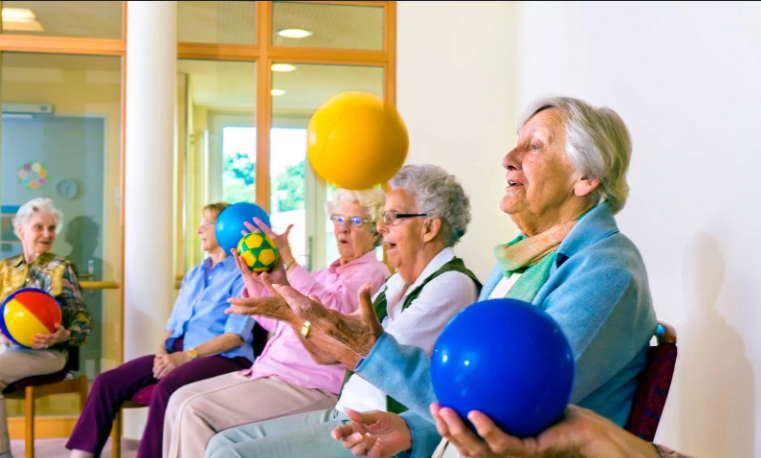Scientific studies continue to reveal that engaging in enjoyable activities offers significant benefits to the brain. Regular participation in play can substantially improve cognitive functions such as memory retention and the ability to learn new information. By stimulating the brain through creative and playful activities, individuals can enhance their mental sharpness and foster innovative thinking. Whether it’s solving puzzles, playing strategic games, or engaging in artistic pursuits, these activities challenge the brain, leading to improved cognitive health.
Play is also crucial in forming, healing, and maintaining relationships. This is particularly important for seniors, who often face loneliness. Statistics indicate that seniors living alone spend over 10 hours each day by themselves. However, engaging in fun activities provides opportunities for social interaction, enabling older adults to forge new friendships and strengthen existing ones. Shared laughter and friendly competition foster a sense of harmony, trust, empathy, and intimacy, making relationships more fulfilling and resilient.
The positive impact of play extends to mental and emotional well-being. Engaging in activities that bring joy can significantly uplift one’s mood and outlook on life. When individuals immerse themselves in enjoyable pursuits, their sense of time often fades, creating moments of pure happiness and reducing stress levels. This immersion in play can also serve as a preventive measure against depression by fostering a more optimistic mindset and providing regular doses of joy and relaxation.
Play as a Means to Extend Life and Enhance Physical Vitality
Physical vitality and longevity are other areas where play proves beneficial. Fun activities can contribute to a youthful feeling and increased energy levels. Engaging in playful activities helps boost the immune system, reducing the risk of illness and enhancing overall health. Additionally, play can alter one’s perception of pain, making it more manageable. Thus, incorporating play into daily routines is a practical approach to improving physical health and extending life expectancy.
Play is a fundamental aspect of human life, essential for people of all ages. Despite the various responsibilities and stresses of daily life, finding time for joyful experiences is crucial. Play is not just for children; adults too can benefit immensely from the relaxation and creativity that come with engaging in fun activities. It is an intrinsic part of who we are, contributing to a balanced and fulfilling life.
One of the most profound effects of play is its ability to unlock creativity. When people engage in playful activities, they often think outside the box, experiment with new ideas, and take risks without fear of failure. This creative mindset can extend to other areas of life, enhancing problem-solving skills and innovation. Whether through imaginative games, art, or playful brainstorming sessions, play encourages a creative and resourceful approach to challenges.
Communities benefit greatly from incorporating play into their social fabric. Community events that include games, sports, and other playful activities bring people together, fostering a sense of belonging and mutual support. These interactions build stronger, more connected communities where individuals feel valued and included. Playful community engagement can also bridge cultural and generational gaps, promoting understanding and cooperation among diverse groups.
The Role of Play in Stress Management
In today’s fast-paced world, stress management is more important than ever. Play offers a natural and enjoyable way to relieve stress. Activities such as sports, dance, and recreational hobbies help release endorphins, the body’s natural stress relievers. By providing a healthy outlet for stress, play helps maintain mental balance and emotional resilience, allowing individuals to navigate life’s challenges more effectively.
The benefits of play do not diminish with age. In fact, maintaining a playful attitude throughout life can lead to greater happiness and fulfillment in older age. Seniors who continue to engage in playful activities often experience better mental and physical health. Play can include anything from participating in community games to enjoying simple hobbies like gardening or painting. Lifelong play keeps the spirit young and the mind active, contributing to overall well-being.
Incorporating play into daily routines can transform one’s quality of life. It is essential to recognize the value of play and make it a priority, despite busy schedules and responsibilities. Simple actions, such as taking short breaks for playful activities, joining a sports team, or dedicating time to hobbies, can make a significant difference. By embracing play, individuals can lead happier, healthier, and more connected lives, underscoring the importance of joy and creativity in everyday living.


